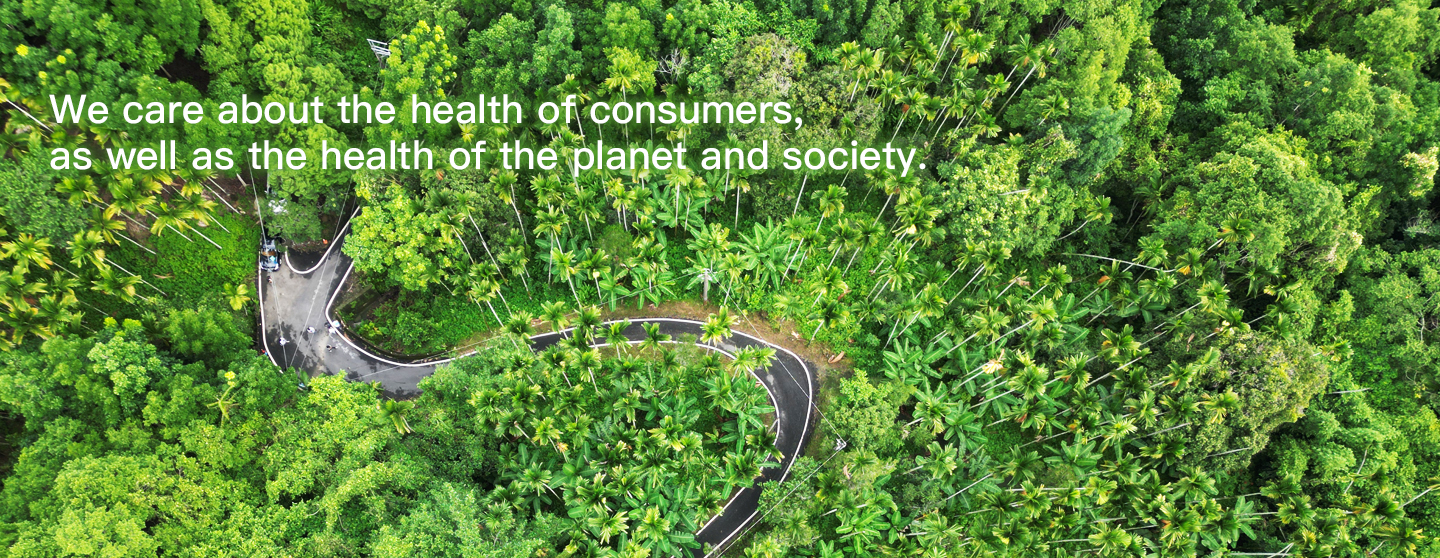



DA YI BIOTECH & HEALTH FOOD CO., LTD.

Chiayi City, Taiwan
February 2024
Other retail sale
Wholesale/Retail
Taiwan
Da Yi Biotech and Health Food Co., Ltd. was established in 2011 as an online brand specializing in providing health food and nutritional supplements. We firmly believe that everyone deserves the right to good health. To make our products more accessible, we have eliminated the costs associated with physical retail. Additionally, we provide a 100-day quality guarantee as a commitment to our consumers. Da Yi Biotech and Health Food Co., Ltd. has participated in the Global Children's Aid Program since 2018, allocating 5% of our monthly net profits to the Taiwan Fund for Children and Families. Our aim is to enhance children's education, health, and medical conditions, with the goal of aiming 10,000 children worldwide. One of our visions is to minimize our environmental impact. We have implemented various measures such as enhancing packaging materials and utilizing renewable energy sources. Furthermore, we are dedicated to forest conservation for preserving biodiversity and maintaining forest carbon sinks.
Overall B Impact Score
Governance 9.2
Governance evaluates a company's overall mission, engagement around its social/environmental impact, ethics, and transparency. This section also evaluates the ability of a company to protect their mission and formally consider stakeholders in decision making through their corporate structure (e.g. benefit corporation) or corporate governing documents.
What is this? A company with an Impact Business Model is intentionally designed to create a specific positive outcome for one of its stakeholders - such as workers, community, environment, or customers.
Governance 9.2
Governance evaluates a company's overall mission, engagement around its social/environmental impact, ethics, and transparency. This section also evaluates the ability of a company to protect their mission and formally consider stakeholders in decision making through their corporate structure (e.g. benefit corporation) or corporate governing documents.
What is this? A company with an Impact Business Model is intentionally designed to create a specific positive outcome for one of its stakeholders - such as workers, community, environment, or customers.
Workers 24.7
Workers evaluates a company’s contributions to its employees’ financial security, health & safety, wellness, career development, and engagement & satisfaction. In addition, this section recognizes business models designed to benefit workers, such as companies that are at least 40% owned by non-executive employees and those that have workforce development programs to support individuals with barriers to employment.
Community 18.5
Community evaluates a company’s engagement with and impact on the communities in which it operates, hires from, and sources from. Topics include diversity, equity & inclusion, economic impact, civic engagement, charitable giving, and supply chain management. In addition, this section recognizes business models that are designed to address specific community-oriented problems, such as poverty alleviation through fair trade sourcing or distribution via microenterprises, producer cooperative models, locally focused economic development, and formal charitable giving commitments.
Environment 24.3
Environment evaluates a company’s overall environmental management practices as well as its impact on the air, climate, water, land, and biodiversity. This includes the direct impact of a company’s operations and, when applicable its supply chain and distribution channels. This section also recognizes companies with environmentally innovative production processes and those that sell products or services that have a positive environmental impact. Some examples might include products and services that create renewable energy, reduce consumption or waste, conserve land or wildlife, provide less toxic alternatives to the market, or educate people about environmental problems.
Customers 4.1
Customers evaluates a company’s stewardship of its customers through the quality of its products and services, ethical marketing, data privacy and security, and feedback channels. In addition, this section recognizes products or services that are designed to address a particular social problem for or through its customers, such as health or educational products, arts & media products, serving underserved customers/clients, and services that improve the social impact of other businesses or organizations.